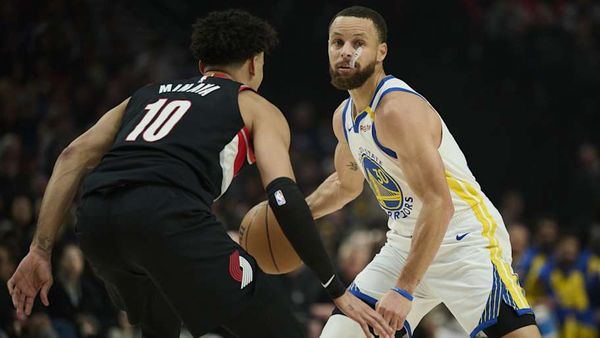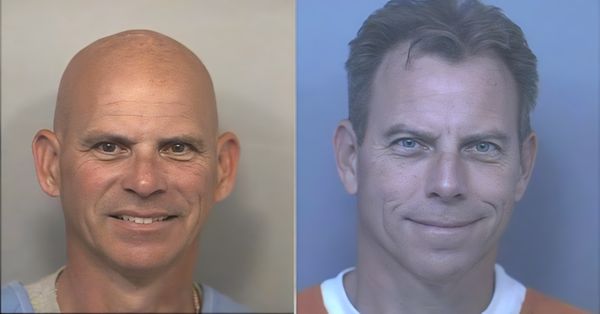
In honour of both the imminent Paris Olympics and the centenary of the 1924 Olympics, also in Paris, here is a rerelease of this superbly watchable true-story parable of patriotism, faith and meritocratic success within the system, much admired by Margaret Thatcher, Ronald Reagan and Joe Biden. It was produced by David Puttnam, who had discovered the story of the devout Christian athlete Eric Liddell refusing to run on Sunday and commissioned a terrifically punchy and sympathetic script from Colin Welland (whose victorious Oscar night cry of “the British are coming!” was destined to be endlessly and ironically re-quoted at moments of British failure and disappointment in Hollywood). It was Welland who incorporated Jewish sprinter Harold Abrahams into the film (as well as another gold medallist, Douglas Lowe, who refused any involvement and had to be written out).
The film was directed with gusto by first-time director and former adman Hugh Hudson, an Old Etonian who had a real feeling for how the establishment preens itself. The British Olympic team’s ecstatic barefoot training run on Broadstairs beach is accompanied by the instantly iconic, daringly non-period and trance-inducing synth score by Vangelis, hilariously spoofed by Rowan Atkinson’s Mr Bean in the London 2012 opening ceremony. And watching the credits again, you might jump at that name just behind Welland and Hudson: young producer Dodi Fayed, given prominence in exchange for cash from his father Mohamed, whose own establishment yearnings were as painful as anything on screen.
Chariots of Fire is the story of two (relative) outsiders, whose stories unfold in parallel, destined to compete alongside each other; they are rivals, teammates but never friends, and in fact they have no meaningful interaction in the drama, though one beats the other in an early heat. Liddell, played by Edinburgh-born stage actor Ian Charleson, is a clean-cut Scots rugby star, athlete and lay preacher, under pressure to resume his family’s missionary work in China. Cheryl Campbell has the rather thankless role of his anxious, querulous sister Jenny. Abrahams, played by the magnificently handsome Ben Cross, is an undergraduate and athlete at Caius, Cambridge, smouldering and simmering with resentment at the antisemitism from the head porter (Richard Griffiths), the Master of Caius, Hugh Kerr Anderson (Lindsay Anderson, no relation) and Master of Trinity JJ Thomson (John Gielgud).
These last two were distinguished scholars and, though unnamed here, the implied slur added to Cambridge University’s displeasure with the production; they were refused permission to film in Trinity College for the uproarious Great Court Run scene, in which Abrahams is imagined to be the first person for 700 years to succeed in this traditional event, running around the court’s perimeter before the clock tolls 12. (In fact, Abrahams never attempted it.) The film made this parochial student lark internationally famous.
Both Liddell and Abrahams infuriate the establishment with their faith and identity. Liddell refuses to run in the 100m because the trials are on a Sunday, and the movie contrives a colossal confrontation between Liddell and the pompous British Olympic committee, before the fictional Lord Andrew Lindsay (Nigel Havers) rescues them by giving up his chance at a second medal to let Liddell take his place in the 400 m on a different day. (In real life, Liddell knew well in advance he wouldn’t be able to compete in the 100m, his best event.)
As for Abrahams, he enrages the snobby bigots by engaging a professional trainer, Sam Mussabini (Ian Holm) – although the movie displays its own amateurist ethos by not showing Mussabini and Abrahams talking about money. Abrahams has a sophisticated, sensual side (which Liddell certainly does not), falling passionately for beautiful singer Sybil Gordon, played by Alice Krige. (This is a mistake on the film’s part; in actuality Abrahams married a different singer, Sybil Evers.)
And so we are taken to the Paris Games, with the original 1924 poster with athletes giving the “Olympic salute” which was retired later when it was co-opted by the fascists. The scene in which Abrahams races the 100m is brilliantly staged by Hudson and editor Terry Rawlings; showing the race once in real time and then immediately again in slo-mo, interspersed with scenes of stunned and dizzied Abrahams. We don’t see the medal ceremony; we glimpse the flag fluttering aloft over the rooftops to the sound of the national anthem, seen from the window of Sam Mussabini’s hotel room which he had discreetly occupied, not wanting to embarrass his quasi-son Abrahams. It is another tremendous dramatic coup.
Chariots of Fire is rare, maybe almost unique, in that it is a British film which really does look and feel like a classic studio-era Hollywood picture.
• Chariots of Fire is in UK cinemas from 26 July.







